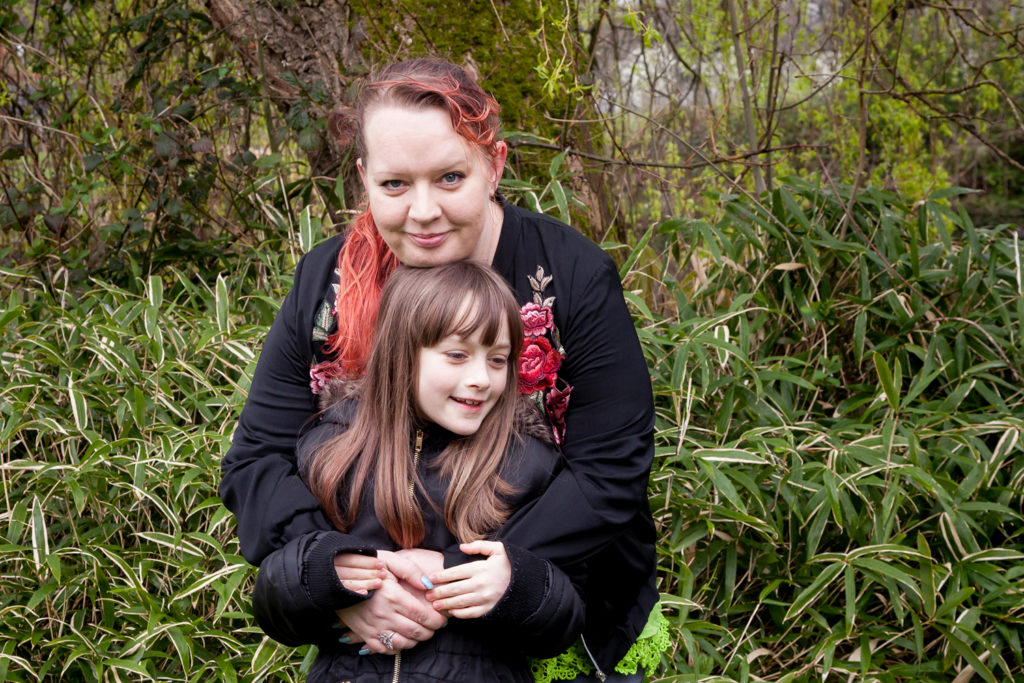Backdating of the disabled child addition and carer element of Universal Credit
12 mins read
This advice applies across the UK.
Families on Universal Credit who have a disabled child usually qualify for extra payments.
There may be a period in which you get Universal Credit, but your award is missing the additional elements. The law says that the extra payments can in most cases be backdated, i.e. paid from an earlier date.
On this page, we explain what you can do when the Universal Credit service refuses to backdate these payments to the correct date.
In this article
Backdating extra payments in Universal Credit
Families on Universal Credit who have a disabled child usually qualify for extra payments.
You should get an extra Universal Credit payment – a disabled child addition – for each child in your family who receives a qualifying disability benefit. Qualifying benefits include Disability Living Allowance (DLA), Personal Independence Payment (PIP) or their Scottish equivalents.
Depending on your circumstances, you may also qualify for an extra payment as a carer: the carer element.
Your Universal Credit award should include an extra disabled child addition for each disabled child in your household who gets one of the following ‘qualifying disability benefits’:
- DLA.
- PIP.
- Child Disability Payment in Scotland.
- Adult Disability Payment in Scotland.
There are two rates of the disabled child addition. The lower disabled child addition is £158.76 per month. Where a child gets the highest rate care component of either DLA or Child Disability Payment, or the enhanced daily living component of either PIP or Adult Disability Payment, you’ll get a higher addition of £495.87. You’ll also get the higher disabled child addition if your child is registered blind or severely visually impaired.
If you have more than one child who qualifies, you can get more than one disabled child addition. You can still get a disabled child addition for a child even if you don’t get a basic child element for them because of the two-child limit.
You’ll receive the carer element if you are a full-time carer for someone on a qualifying disability benefit. The standard rate is £201.68 per month. If you and your partner each care for a different disabled person, you might get two carer elements.
You’ll qualify for a carer element if you meet all the qualifying rules for Carer’s Allowance or if the only reason you are not eligible for Carer’s Allowance is because your earnings are too high. You do not have to have claimed Carer’s Allowance. You just need to show that you meet all of the relevant tests other than the earnings limit. This also applies if you live in Scotland, despite the fact that Carer’s Allowance is not payable in that country.
In practice, this means that to qualify for a carer element, all the following must apply to you:
- You must be 16 or over.
- You provide more than 35 hours a week care to someone who is in receipt of a qualifying disability benefit
- You are not a person subject to immigration control.
- You have been in the UK for at least 104 weeks out of the previous 156 weeks and meet other tests linked to your residence in the UK.
- No one else is already claiming as a carer for the same disabled person.
- You are not in full-time education.
You are also eligible for the carers element if you get the Scottish Carer Support Payment.
If you are a disabled carer, your Universal Credit award cannot include both a carer element and a limited capability for work (LCWRA) element for you. If you qualify for both elements, your Universal Credit only includes the LCWRA element. However, if you have a partner, they may be eligible for a carer element instead of you.
Sometimes there can be a delay in the Universal Credit service finding out that you are eligible for a disabled child addition or carer element. This means there will be a period in which you get Universal Credit, but your award is missing the additional elements. The law says that the extra payments can in most cases be backdated, i.e. paid from an earlier date.
When should the Universal Credit office backdate extra payments to?
This depends on when your child’s disability benefit was awarded or increased, and when it was paid from.
Disability benefit awarded and in payment before you claimed Universal Credit
There may be cases where your child was awarded a disability benefit before you moved onto Universal Credit. However, because of a mistake, a disabled child addition or carer element has been missing from the very start of your Universal Credit award.
If this applies to you, the chances of getting payments backdated will depend on how that mistake came about. You will need detailed individual advice, so call our free helpline or speak to a local advice service.
The rest of the information on this page will not be relevant to you. You cannot use our template letters, below.
Disability benefit awarded after receiving Universal Credit, but backdated to a date before receiving Universal Credit
For example, you make a claim for DLA in May. You migrate from tax credits to Universal Credit in June. In September, you get a decision awarding you DLA and backdating it to May.
In this situation, you will be able to get the Universal Credit service to backdate additional disabled child payments to the date when your Universal Credit started (June in the example above). If the Universal Credit service refuse to backdate to this date, you will need individual advice about this. Call our free helpline or speak to a local advice service. Our template letters below do not cover this scenario.
If you were receiving a legacy benefit, such as Child Tax Credit, before moving onto Universal Credit, you should also seek individual advice about asking for backdating payments for your disabled child from the office that previously paid you that legacy benefit. Tax credits are only likely to pay you arrears if you tell them about your child’s disability award within one month of the date of the disability award letter.
Disability benefit awarded or increased and paid from a date after you moved onto Universal Credit
The law makes clear that the Universal Credit service should backdate the child disability addition to a date slightly before the award of the child’s disability benefit. This applies regardless of the reason there was a delay telling them about your child’s disability benefit.
For example, you start getting Universal Credit in February and your child’s entitlement to DLA starts on 10 June. The Universal Credit service doesn’t learn about your child’s DLA award until November. In this situation, they should backdate the disabled child addition to either May or June. The date it would be backdated to would be the start of the monthly assessment period in which 10 June falls.
If you’re also eligible for a carer element, it may also be possible to get this backdated in line with your child’s disability benefit.
It is also possible to get backdating if your child has an existing disability benefit award increased to either the highest component for personal care or the enhanced rate of the daily living component. In this case, your extra Universal Credit payments should increase too. This is because you start to qualify for the higher disabled child addition for that child, rather than the lower. You should receive arrears of the difference between these two payments. The Universal Credit service should also backdate these arrears to the start of the monthly assessment period in which your child’s qualifying disability benefit increased.
When the Universal Credit service might refuse to backdate
Sometimes the Universal Credit service refuses to backdate the disabled child addition or carer element beyond the start of the month in which they first learnt about your entitlement.
Restricting backdating in this way is unlawful where the disabled child is part of your benefits claim.
Universal Credit staff will often claim that they cannot backdate any further than this. This is unless you can show “special circumstances” why you did not tell them about your child’s disability award earlier. But this is not accurate.
They should backdate extra payments to the date your child’s entitlement to the qualifying disability benefit started. They should do this regardless of the reasons there was a delay in them finding out about your child’s disability award. There is no need to show that you had ‘special circumstances’ for telling them late.
Caring for a child who is not part of your Universal Credit claim
The situation is different if you are a carer for a disabled child who is not part of your own Universal Credit claim. For example, you might be an extended family member helping provide care to a child who lives with their parents. The rules allowing full backdating of the carer element regardless of any delay in notification only apply where a carer is looking after someone who is part of their Universal Credit claim (i.e. their partner or a child for whom they are responsible).
If you have been refused backdating of the carer element and you are carer for a disabled child who is not part of your own Universal Credit claim, seek individual advice. You will not be able to use our template letters.
What to do if the Universal Credit service refuses to backdate
Use our template letters to request a review
We have developed a number of template letters. You can use these to ask the Universal Credit service to revise their decision not to backdate the disabled child addition or the carer element.
You can only use these templates if your child’s disability benefit award or increase came after you moved onto Universal Credit.
You’ll answer a series of questions, which will then identify the appropriate template for you to use. You can then cut and paste the content from the template into your online Universal Credit journal.
Go to our templates

Backdating Universal Credit payments: template letters
Ask the Universal Credit service to revise their decision not to backdate the disabled child addition or the carer element.
When you can’t use our templates
There are a few situations in which our template letters won’t help, and you’ll need other advice – see below.
I’m not getting the child disability or carer elements
Visit our Universal Credit page to see whether you might be eligible for extra amounts in your award.
The Universal Credit service will backdate more than a month but not to the correct date
Seek individual advice from our free helpline or a local advice agency rather than using a template.
I’ve already had a revision request refused and need to appeal
You will need individual advice about lodging an appeal.
Contact our free helpline for urgent advice about lodging an appeal. You can also speak to a local advice service in your area, such as a Citizens Advice.
I’ve not had a decision on backdating yet
If the Universal Credit service has not yet awarded you a disabled child addition or carer element, you will need to ask them to do this first. Come back to this page if they award additional payments but refuse to backdate them.
If you are not sure whether you are eligible for a disabled child addition or carer element, you can check the qualifying rules on our Universal Credit page.
Getting a new carer element or disabled child addition when you qualify for transitional protection
Normally, your Universal Credit payments will go up if you receive a new disabled child addition or carer element or you have an increase in your disabled child addition from the lower to the higher rate.
The situation is more complicated if you are someone whose Universal Credit award includes a transitional element. Where this applies, you may not see your Universal Credit award increase. This is because any new Universal Credit element, or an increase in an existing element (other than help with childcare costs), is deducted from your transitional element.
Example: Nooreen gets Universal Credit that includes a transitional element of £500 per month. Her child gets DLA at the middle rate of the care component. As a result she starts to get both a disabled child addition of £158.76 and a carer element of £201.68 added into her Universal Credit award. However, both these additional amounts are then deducted from her transitional element, reducing it from £500 to £139.56 per month.
If you are someone who receives a Universal Credit transitional element and you have recently received an award of a qualifying disability benefit for your child that has been backdated to a date before your Universal Credit started, the situation is more complicated. Seek individual advice if this applies to you.
More Universal Credit advice
Moving onto Universal Credit from legacy benefits
Universal Credit for young people receiving education
Caring couples and Universal Credit
Related information

Carer’s Allowance
Carer's Allowance is the main benefit for carers who provide at least 35 hours of care per week.
Read more
Carer’s assessments: your needs as a carer
Advice on asking for a carer's assessment, what the assessment looks like and what happens after the assessment.
Read more
Disability Living Allowance (DLA)
Disability Living Allowance (DLA) is the main benefit for children under 16 with a condition or disability.
Read more